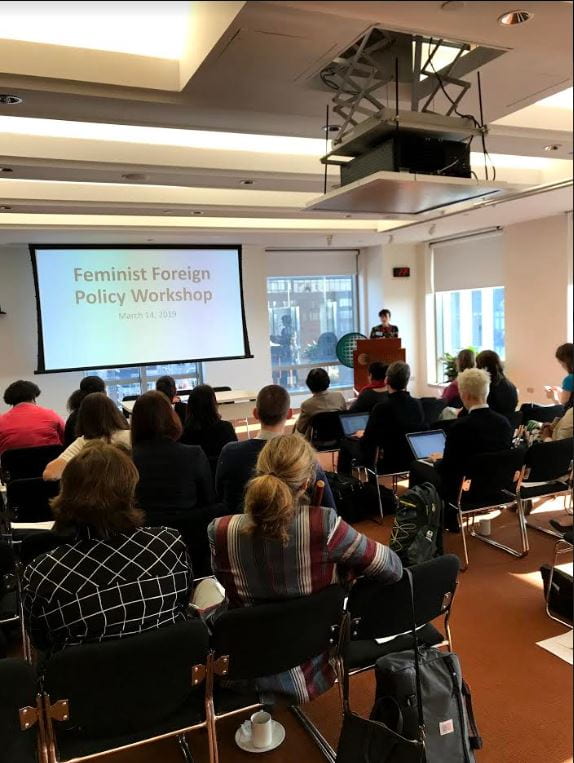Authors:
Alice Ridge, Caroline Lambert and Joanne Crawford, International Women’s Development Agency; Rachel Clement, Lyric Thompson and Sarah Gammage, International Center for Research on Women; and Anne Marie Goetz, Center for Global Affairs (New York University)
 Sweden announced that it is practicing ‘feminist foreign policy’ in 2014. France did in March this year. Canada has promoted feminist international development policy since 2017. Foreign policy matters for women’s rights because it shapes whether relations between nations might include support for gender equality. Foreign policy can direct whether trade deals benefit countries with poor women’s rights records, or whether development aid is used to support women’s’ rights ambitions of women’s’ movements in low-income countries. Feminist foreign policy is very new, and still under-defined. Can a country that sells arms to Saudi Arabia be said to be practicing feminist foreign policy? What position should countries professing feminist foreign policy practice take on women’s reproductive and sexual rights?
Sweden announced that it is practicing ‘feminist foreign policy’ in 2014. France did in March this year. Canada has promoted feminist international development policy since 2017. Foreign policy matters for women’s rights because it shapes whether relations between nations might include support for gender equality. Foreign policy can direct whether trade deals benefit countries with poor women’s rights records, or whether development aid is used to support women’s’ rights ambitions of women’s’ movements in low-income countries. Feminist foreign policy is very new, and still under-defined. Can a country that sells arms to Saudi Arabia be said to be practicing feminist foreign policy? What position should countries professing feminist foreign policy practice take on women’s reproductive and sexual rights?
On March 14 Professor Goetz co-organized a workshop on the fringes of the annual meeting of the UN Commission on the Status of Women with the International Center for Research on Women (ICRW, Washington DC), and the International Women’s Development Agency (Canberra, Australia), to brainstorm on the meaning of feminist foreign policy. Forty feminists representing organizations from Argentina, Australia, Botswana, Canada, China, the Dominican Republic, Fiji, Georgia, India, Kenya, the Netherlands, Papua New Guinea, the Philippines, Russia, Sweden, the United States, the UK, West Papua and Zimbabwe came together to propose core principles and accountability mechanisms that would enhance the development, refinement and delivery of feminist foreign policy moving forward. You can read the workshop report here: Feminist Foreign Policy – Discussion Summary (PDF)
